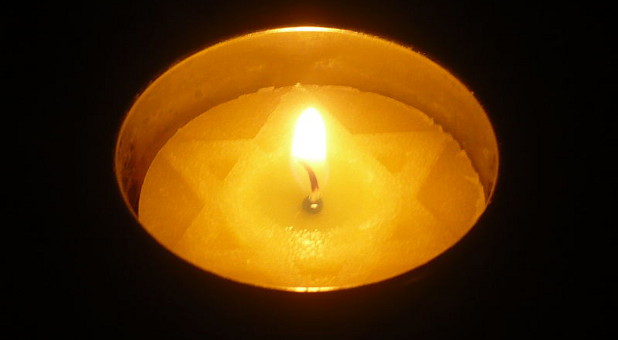Mixed Feelings Come With Remembering the Holocaust
As I walked through the cool mist towards the entrance of Yad Vashem, I found that there was a song that was stuck in my head. It was not a pop song or a top-40 hit, nor was it a sad lullaby such as accompanies most Holocaust memorial experiences. It was “Hatikvah,” the national anthem of the State of Israel.
I had remembered listening to a recording of “Hatikvah” while studying the Holocaust in high school in Pheonix.
“Hatikvah” (The Hope) was originally written in 1897 by Naftali Herz Imber. The rough English translation reads:
As long as in the heart within,
A Jewish soul still yearns,
And onward, towards the ends of the east,
An eye still gazes toward Zion;
Our hope is not yet lost,
The hope of two thousand years,
To be a free people in our land,
The land of Zion and Jerusalem.
For those of you not familiar with where Yad Vashem is located in Jerusalem, it is within walking distance of the grave of Theodore Herzl, a central figure of the Zionist movement who worked to establish a nation state in the ancient Jewish homeland of Israel. His efforts were strengthened by the passion for Tzion, the Land of Israel, and Jerusalem, to which Jews throughout the centuries have prayed to return.
With Yom HaShoah, we remember the six million Jews who lost their lives simply for being Jews—from Bergen-Belsen, Birkenau, Treblinka, Lodz, Krakow, Vilna, Odessa, Prague, Holland, Majdanek, and the killing pits of the Ukraine—everywhere the Holocaust extinguished the light of hope of Jews young and old.
We also must remember those who emerged from hiding, the surviving ghetto fighters, the children, and all the men and women who overcame the unthinkable to help realize the establishment of the State of Israel.
Herzl’s dream of a Jewish state is now a reality. The hope to be a free people in a Jewish land is no longer a dream, but rather an embodiment of the hope that continues to live within the Jewish heart.
Yad Vashem is a testimony to those voices from the ghettos and the graves, even from within the gas chambers just moments before their death, that a land exists where Jews can be free from harm, a land of our forefathers, a place where Jews can simply live proud and free as Jews.
Some people are disturbed by the link between the Holocaust and Israel that Yad Vashem represents. Some claim that we, the Jewish people, only have Israel because of the Holocaust. But as my friend Dr. Elana Heideman always emphasizes, it is in fact because we did not have Israel that the Holocaust could happen.
As I looked into the sunset and as the air grew cold, at that moment I did not feel depressed because of the travesty of the Holocaust. I felt proud of what the survivors of the Holocaust were able to achieve in spite of their unexplainable and inhumane suffering:
The establishment of a land where I could stand proudly as a Jew, heir to the memory of our people’s suffering, and continuously building my connection to the land of Zion where I could be myself and feel at home.
For the original article, visit israelforever.org.














































